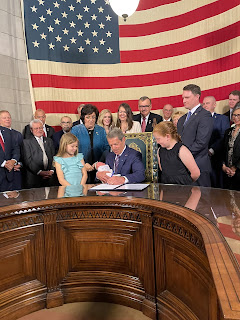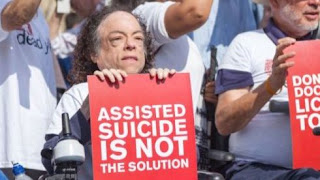 |
| Rhode Island Gov. Daniel McKee (D) |
The "Equality in Abortion Coverage Act" overrides a previous state law, which prohibited abortion from being covered under Rhode Island's state health insurance.
“Here in Rhode Island, we will always protect a woman's right to choose and ensure equal access to these crucial health care services,” McKee said in a press release. “As Governor, I am proud to sign this bill into law and I was proud to include related funding in my budget proposal this year. Thank you to all the legislative leaders and advocates who worked tirelessly to get this legislation over the finish line.”
“The purpose of Medicaid is to expand access to health care, not to limit it,” said Lt. Governor Sabina Matos. “I'm proud that after years of work, the passage of the Equality in Abortion Coverage Act has eliminated unjust restrictions on who can afford to access to reproductive health care in Rhode Island. This victory for equity in health care was only possible due to the passionate advocacy of the citizens who made their voice heard year after year here at the State House.”
Taxpayer-funded abortion was not universally supported by "pro-choice" democratic legislators. Some legislators, like Rep Charlene Lima (D), argued that forcing pro-life taxpayers to foot the bill for abortions is "fundamentally wrong."
“It is fundamentally wrong to ask the taxpayers to pay for Medicaid abortions and abortion coverage under taxpayer-funded state insurance plans … I plan to vote no,” Lima said. “The taxpayers who have a fundamental belief against abortion are going to have to pay for it. Don’t say the taxpayers aren’t going to pay for it, we know they are.”












.jpg)






